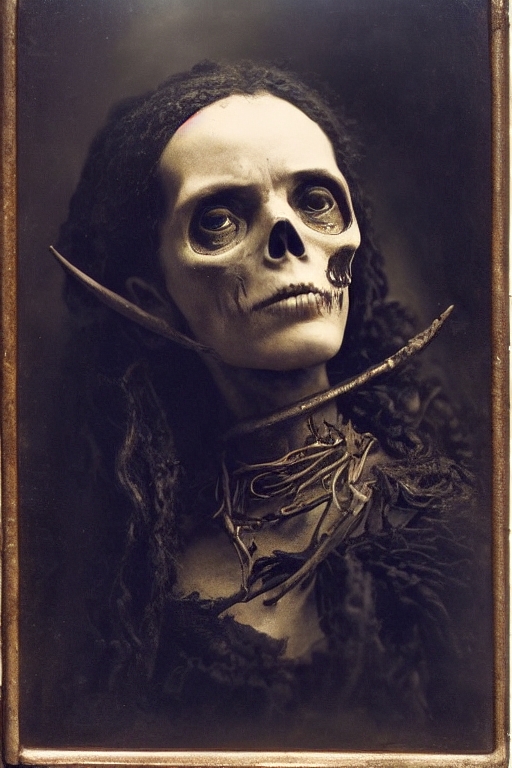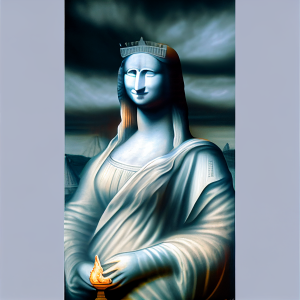“Night of the Living Dead,” the movie, started a genre. Not just in movies but in literature as well. When George A. Romero produced “Night of the Living Dead,” he used the term “ghoul” to discuss the movie.
Back then a zombie was a different sort of creature entirely. Part of Voodoo, a zombie was either a very fresh body brought back from the dead, or a person drugged to near death and possibly hypnotized.
In the old zombie stories, masters of Voodoo, usually women, used zombies as cheap labor and creepy thugs. Zombies have been an element of horror in film since 1932 when the first zombie movie came out. “White Zombie,” started a horror theme of Voodoo and zombies in film, and that horror theme existed in literature, but until Night of the Living Dead came out, zombies where the result of drugs, superstition, black magic, and or poison.
The older type of zombie is now lost amid modern interpretations. Superstition and magic are no longer parts of the common story, but for the most part, they are still magical. The magic is hidden by suspension of doubt. No one says it, but, dead bodies decay, and there is a lot involved in maintaining bodily functions. Even shambling uses up energy, so unless it’s magic, the slow moving near-dead or near-life creatures without the teeth and jaws needed to rend flesh properly are going to run down quickly and still need water. The modern zombie novel requires a lot of fancy footwork to get around biology and physics. Without that footwork, a zombie novel is as magical as a grimdark urban fantasy.
There is yet another type of zombie. A creature that should be dead, but lives on. A creature almost impossible to kill. These are creatures created by critics, “experts,” reviewers, and grammarians. If you wonder about the odd spellings in English, these are examples of zombies. Some of the “Experts” during the time of Shakespeare and shortly after, decided that English should be more like Latin and put rules and spelling in, often with mistaken reasoning. They did not make reading or writing easier or better.
Zombie rules in grammar are things held over from the past or made up that we all have to follow or suffer through. A good example is the comma in this sentence, as it does nothing apart from telling you I may be able to do a sentence diagram. Yet, if I do not use it, some will consider me stupid, so I must add this meaningless* comma when the rules tell me to. Zombie rules for literature can be just as meaningless and pedantic. The worst zombie rules are things such as not beginning a story with weather or someone waking up.
That’s right, all the “experts” are going to eviscerate you if you start a story with the weather or someone waking up, despite those scenarios being popular in manga or anime. Without setting the tone of place, season, and weather, you are forced to have every story begin in imagined clear weather. That and you should have began with someone involved in dramatic action.
The reason for this particular zombie rule is the author considered so bad that his name is used for a bad writing contest: The Bulwer Lytton Fiction Contest. But the truth is stranger. Bulwer Lytton was considered to be the best writer who ever lived. Edward George Earle Lytton Bulwer-Lytton, First Baron Lytton, PC, was so compelling that one of his anonymously published fantasy writings had the actual, original Nazis looking for Vril, the secret energy used by the people in a place he made up. He was so popular that everyone started to copy him. Every hack writer started using every method they could to write just like poor Bulwer. As a result, his writing is now the archetype of bad. All the bad writers beginning stories the way Bulwar did, made Bulwar just as tiring.
The worst zombie rule and the strongest, forbids the use of adjectives and adverbs. how dare you describe things well and simply!** Excluding valid parts of English with a sniff and snobbish dismissal shows how desperately some will cling to what they learned in grammar school English. An audience able to forgive the full use of English, such as readers of the romance or zombie genre, enjoy a much more lively novel. But if you want to please the pedantic, abandon freedom of expression.
So, there we have it. Who knew that readers of zombie fiction would be the ones most resistant to zombie rules?
*This comma is not meaningless. Perhaps I will bore you with myriad reasons why at a later date. – Ed.
**Using semicolons is also a terrible sin, for reasons that escape reasonable folks. – Ed. <Logical folk however know the reasons. 1. They are most often used pedantically like the number one I just used. It just feels OCD. B. Since few know how to use them and most use them wrong, right or wrong they can feel wrong. III. Lists are usually boring, and fourth, they were invented to provide a pause between the length of a “,” and a “:” back when a lot of grammar was related to telling the reader how to read it out loud correctly and that is no longer a thing. -Bob>

Art by AI (Midjourney). Elements prompted, guided, and selected by Robert Strawn 2022


